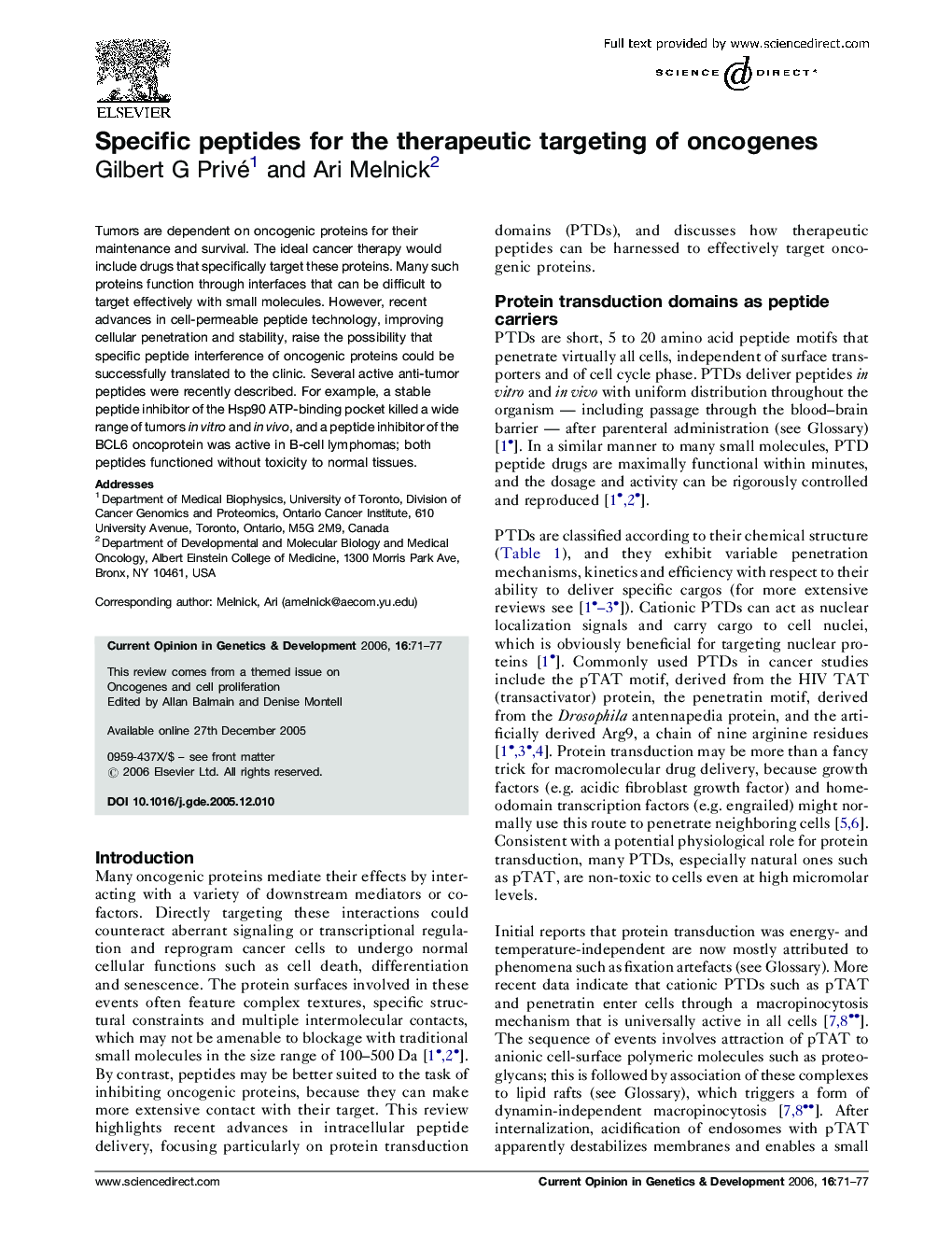| Article ID | Journal | Published Year | Pages | File Type |
|---|---|---|---|---|
| 2785503 | Current Opinion in Genetics & Development | 2006 | 7 Pages |
Tumors are dependent on oncogenic proteins for their maintenance and survival. The ideal cancer therapy would include drugs that specifically target these proteins. Many such proteins function through interfaces that can be difficult to target effectively with small molecules. However, recent advances in cell-permeable peptide technology, improving cellular penetration and stability, raise the possibility that specific peptide interference of oncogenic proteins could be successfully translated to the clinic. Several active anti-tumor peptides were recently described. For example, a stable peptide inhibitor of the Hsp90 ATP-binding pocket killed a wide range of tumors in vitro and in vivo, and a peptide inhibitor of the BCL6 oncoprotein was active in B-cell lymphomas; both peptides functioned without toxicity to normal tissues.
